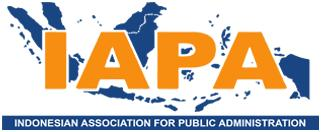Unveiling Urban Voices: Citizen Reporter Impact on Public Services Responsiveness in Makassar City
Abstrak
This study proposes to analyze the influence of netizen (net citizen) accounts on the government's response to public service issues in Makassar over one year. The research method involves using data collected from the user's accounts, focusing on the frequency of reporting, types of issues reported, geographic distribution of reports, types of media used, and government responses to these reports. The analysis indicates that reports through citizen reporter accounts tend to receive quicker responses compared to direct complaints, with respondents evaluating the quality of these responses more positively. These findings suggest that digital platforms, such as social media, are effective in enhancing responsiveness due to emergency events, public priorities, and social pressures resulting from viral reporting.
Kata Kunci
Teks Lengkap:
PDF (English)Referensi
Abu-Tayeh, G., Neumann, O., & Stuermer, M. (2018). Exploring the Motives of Citizen Reporting Engagement: Self-Concern and Other-Orientation. Business and Information Systems Engineering, 60(3). https://doi.org/10.1007/s12599-018-0530-8
Allen-Greil, D., Edwards, S., & Ludden, J. (2011). Social Media and Organizational Change. In Museums and the Web: Vol. Proceeding.
Buntaine, M., Hunnicutt, P., & Komakech, P. (2019). The Challenges of Using Citizen Reporting to Improve Public Services: A Field Experiment and Framework. SSRN Electronic Journal. https://doi.org/10.2139/ssrn.3299044
Dapko, J. L., Boyer, S., & Harris, E. (2021). The importance of timely social media responsiveness. Journal of Digital and Social Media Marketing, 8(4).
Denisova, A. (2023). Viral journalism. Strategy, tactics and limitations of the fast spread of content on social media: Case study of the United Kingdom quality publications. Journalism, 24(9). https://doi.org/10.1177/14648849221077749
Ennser-Jedenastik, L., Gahn, C., Bodlos, A., & Haselmayer, M. (2022). Does social media enhance party responsiveness? How user engagement shapes parties’ issue attention on Facebook. Party Politics, 28(3). https://doi.org/10.1177/1354068820985334
Eom, S. J., Hwang, H., & Kim, J. H. (2018). Can social media increase government responsiveness? A case study of Seoul, Korea. Government Information Quarterly, 35(1). https://doi.org/10.1016/j.giq.2017.10.002
Goren, T., Beeri, I., & Vashdi, D. R. (2023). The phantom effect of social media: the impact of no “likes” on politicians’ responsiveness to public opinion. In Journal of Information Technology and Politics (Vol. 20, Issue 3). https://doi.org/10.1080/19331681.2022.2106005
Goyanes, M., Borah, P., & Gil de Zúñiga, H. (2021). Social media filtering and democracy: Effects of social media news use and uncivil political discussions on social media unfriending. Computers in Human Behavior, 120. https://doi.org/10.1016/j.chb.2021.106759
Grossman, G., & Slough, T. (2022). Government Responsiveness in Developing Countries. In Annual Review of Political Science (Vol. 25). https://doi.org/10.1146/annurev-polisci-051120-112501
Hidayat, T., & Mahardiko, R. (2020). The effect of social media regulatory content law in Indonesia. Journal of Telecommunications and the Digital Economy, 8(2). https://doi.org/10.18080/jtde.v8n2.247
Homburg, V. (2022). Institutional Trust and Social Media Use in Citizen-State Relations: Results from an international cross country vignette study. ACM International Conference Proceeding Series. https://doi.org/10.1145/3543434.3543453
Johnston, K., Alberti, F., & Kravariti, F. (2024). Representative bureaucracy and organizational attractiveness: An experimental study of symbolic representation of the US and UK police. Public Administration Review, 84(2). https://doi.org/10.1111/puar.13675
Kte’pi, B. (2019). Social Media and Law Enforcement. Social Media & Law Enforcement -- Research Starters Sociology.
Lorenzi, D., Chun, S., Adam, N., Vaidya, J., Vegesna, N., Wainer, S., Shafiq, B., Alzamil, Z., & Atluri, V. (2014). Utilizing social media to improve local government responsiveness. ACM International Conference Proceeding Series. https://doi.org/10.1145/2612733.2612773
Mansoor, M. (2021). Citizens’ trust in government as a function of good governance and government agency’s provision of quality information on social media during COVID-19. Government Information Quarterly, 38(4). https://doi.org/10.1016/j.giq.2021.101597
Miladi, N. (2016). Social media and social change. Digest of Middle East Studies, 25(1). https://doi.org/10.1111/dome.12082
Nguyen, T. T. U., Nguyen, P. Van, Huynh, H. T. N., Vrontis, D., & Ahmed, Z. U. (2024). Identification of the determinants of public trust in e-government services and participation in social media based on good governance theory and the technology acceptance model. Journal of Asia Business Studies, 18(1). https://doi.org/10.1108/JABS-04-2023-0160
Panagiotopoulos, P., Barnett, J., & Brooks, L. (2013). Social media and government responsiveness: The case of the UK food standards agency. Lecture Notes in Computer Science (Including Subseries Lecture Notes in Artificial Intelligence and Lecture Notes in Bioinformatics), 8074 LNCS. https://doi.org/10.1007/978-3-642-40358-3_26
Rodriguez Müller, A. P., Lerusse, A., Steen, T., & Van de Walle, S. (2021). Understanding channel choice in users’ reporting behavior: Evidence from a smart mobility case. Government Information Quarterly, 38(1). https://doi.org/10.1016/j.giq.2020.101540
Wang, Q., Liu, M., Xu, J., & Zhang, B. (2023). Blow the Lid Off: Public Complaints, Bargaining Power, and Government Responsiveness on Social Media. Environmental and Resource Economics, 85(1). https://doi.org/10.1007/s10640-023-00761-x
Wirtz, B. W., Langer, P. F., Göttel, V., & Thomas, M. J. (2020). Public Social Media Services: A Citizen’s Perspective. Public Performance and Management Review, 43(6). https://doi.org/10.1080/15309576.2020.1760112
Wouters, R., Staes, L., & Van Aelst, P. (2023). Word on the street: politicians, mediatized street protest, and responsiveness on social media. Information Communication and Society, 26(16). https://doi.org/10.1080/1369118X.2022.2140013
Yuan, L., Razi, S. A. binti H. M., Mahamed, M., & Kasimon, D. N. B. (2024). The Roles of Social Media and Traditional News Media in Promoting Government Responsiveness in Social Incidents. Studies in Media and Communication, 12(1). https://doi.org/10.11114/smc.v12i1.6679
DOI: https://doi.org/10.24198/jmpp.v8i2.55594
Refbacks
Jurnal Manajemen Pelayanan Publik Indexed By:



This work is licensed under a Creative Commons Attribution-ShareAlike 4.0 International License.


















21.png)



.png)